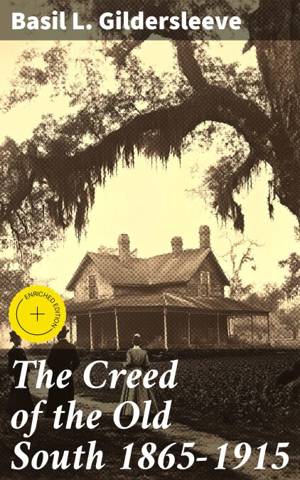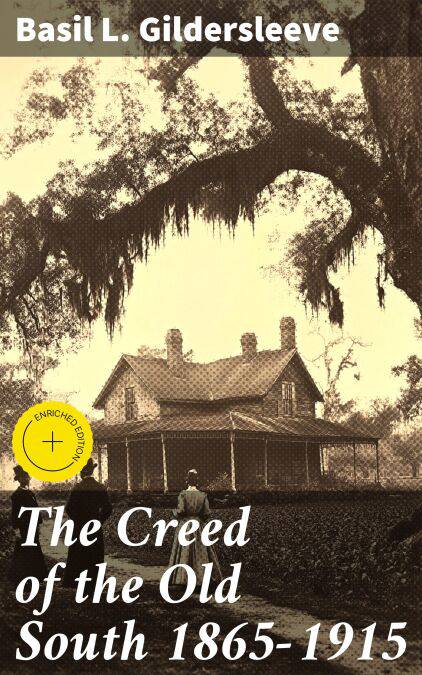
Bedankt voor het vertrouwen het afgelopen jaar! Om jou te bedanken bieden we GRATIS verzending (in België) aan op alles gedurende de hele maand januari.
- Afhalen na 1 uur in een winkel met voorraad
- In januari gratis thuislevering in België
- Ruim aanbod met 7 miljoen producten
Bedankt voor het vertrouwen het afgelopen jaar! Om jou te bedanken bieden we GRATIS verzending (in België) aan op alles gedurende de hele maand januari.
- Afhalen na 1 uur in een winkel met voorraad
- In januari gratis thuislevering in België
- Ruim aanbod met 7 miljoen producten
Zoeken
The Creed of the Old South 1865-1915 E-BOOK
Unveiling the Ideological Foundations of the Old South
Basil L. Gildersleeve
E-book | Engels
€ 0,49
Omschrijving
Basil L. Gildersleeve's "The Creed of the Old South 1865-1915" is a seminal work that delves into the intricate social, political, and cultural fabric of the Southern United States during a pivotal period in American history. Through a rich tapestry of historical analysis and literary narrative, Gildersleeve unpacks the prevailing ideologies that shaped Southern identity post-Civil War. His prose blends rigorous scholarship with evocative language, providing deep insights into the complexities of Southern beliefs and practices as they evolved in response to modernization and Reconstruction. As a reflection of its time, the book examines themes of nostalgia, regional pride, and the struggles against Northern hegemony in forming a unique Southern consciousness. Basil L. Gildersleeve, an esteemed scholar of linguistics and literature, was born in the South and maintained profound ties to his native region. His academic journey informed his exploration of Southern culture, particularly the interplay between language and identity. Gildersleeve'Äôs personal experiences, combined with his scholarly background, contribute to the depth and authenticity of his examination of the South's ethos and its controversial past. This book is essential for anyone interested in understanding the moral and philosophical underpinnings of Southern culture during a transformative era. Scholars, students, and casual readers alike will find Gildersleeve's work to be an enlightening resource that challenges preconceptions while offering a nuanced perspective on the Old South's legacy.
Specificaties
Betrokkenen
- Auteur(s):
- Uitgeverij:
Inhoud
- Aantal bladzijden:
- 158
- Taal:
- Engels
Eigenschappen
- Productcode (EAN):
- 4057664583369
- Verschijningsdatum:
- 2/12/2019
- Uitvoering:
- E-book
- Beveiligd met:
- Digital watermarking
- Formaat:
- ePub

Alleen bij Standaard Boekhandel
Beoordelingen
We publiceren alleen reviews die voldoen aan de voorwaarden voor reviews. Bekijk onze voorwaarden voor reviews.









